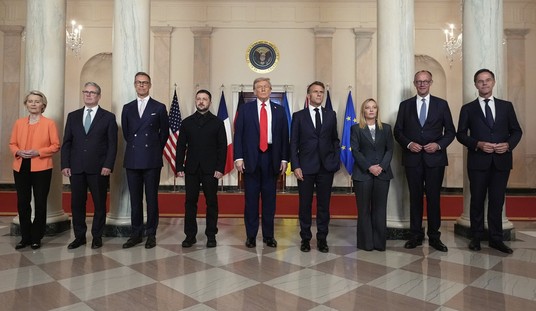To cleanse the palate, your feelgood video of the day. Skip to 5:00 for Brantly’s portion of the presser; he speaks for more than seven minutes but the key bit, in which he describes coming down with Ebola, comes in the first three minutes. I didn’t know what to expect when I heard he’d be released but I’m surprised regardless at how fully he seems to have recovered. According to his own timeline, it’s been slightly less than a month between the moment he began to feel unwell and today’s triumphant reemergence. I’m curious to know how he thinks he contracted the disease in the first place. He mentions taking precautions in treating patients in Africa but doesn’t say how he thinks the slip-up happened.
As for how he got well, it may have been that experimental serum that cured him — but it probably wasn’t:
They were the first human beings to receive an experimental drug called ZMapp. But they are not the first people to have recovered from Ebola, and good hospital care is likely more responsible for their recovery than any mysterious “serum,” as the charities they work for termed it…
Ribner says three weeks of treating Writebol and Brantly have shown them something else: Just like with cholera, patients have severe diarrhea and they lose important chemicals called electrolytes. Replacing these minerals — notably potassium, magnesium and sodium — helps patients recover better, he said.
“The key to resolving Ebola virus infection was aggressive supportive care,” he said. This level of care just isn’t available in most parts of Liberia, Sierra Leone and Guinea, where clinics struggle to even provide clean water and beds for patients.
Here’s Brantly, clearly a gracious man and just as clearly devout. Too much so to mention that there were plenty of people, some of them famous, who didn’t want him brought back to the U.S. and treated. It took guts for the Emory medical staff to care for him knowing the risk. There’s a reason he’s so effusive in thanking them.









Join the conversation as a VIP Member